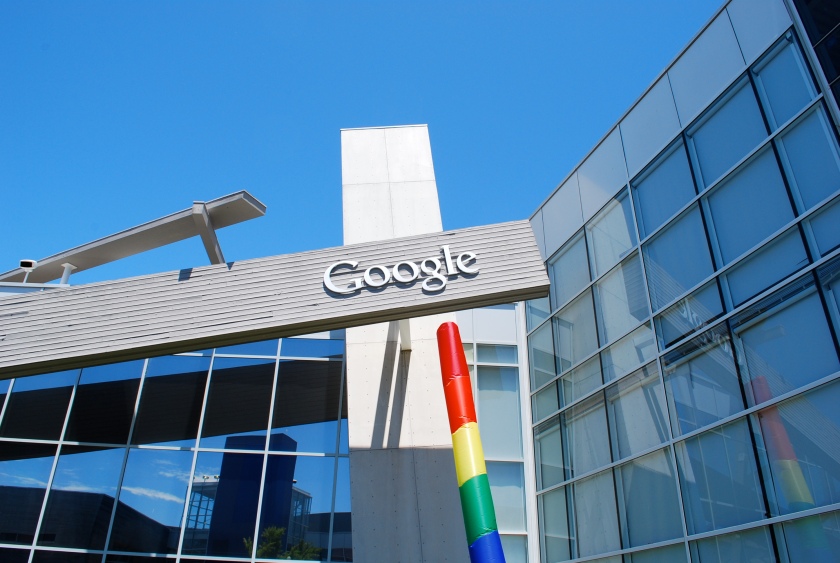
By Dan Kennedy
Since early 2021, Google has faced legal challenges over its control of digital advertising. Essentially, the tech giant stands accused of violating antitrust law by controlling all aspects of the ad market. As Paul Farrell, the lawyer for a group of seven newspapers in West Virginia, told Gretchen A. Peck of the trade publication Editor & Publisher:
They [Google] have completely monetized and commercialized their search engine, and what they’ve also done is create an advertising marketplace in which they represent and profit from the buyers and the sellers, while also owning the exchange. Google is the broker for the buyer and gets a commission. Google is the broker for the seller and gets a commission. Google owns, operates and sets the rules for the ad exchange. And they are also in the market themselves.
The suit filed by Farrell on behalf of the West Virginia papers was later joined by about 200 papers and included Facebook, which was accused of colluding with Google in order to receive preferential treatment. Attorneys general in Texas and several other states filed a separate suit, with BuzzFeed News reporting that the CEOs of Google and Facebook “personally signed off on a secret advertising deal.” The Justice Department got involved, and the European Union is suing Google on similar grounds.
On Tuesday, Google’s legal woes grew that much more complicated as Gannett, the country’s largest newspaper chain, filed its own lawsuit against Google in federal district court. Writing in USA Today, Gannett’s flagship publication, chair and CEO Mike Reed accused Google of “monopolization of advertising technology markets and deceptive commercial practices.” He added:
The core of the case and our position is that Google abuses its control over the ad server monopoly to make it increasingly difficult for rival exchanges to run competitive auctions. Further, Google’s exchange rigs its own auctions so Google’s advertisers can buy ad space at bargain prices. That means less investment in online content and fewer ad slots for publishers to sell and advertisers to buy. Google always wins because it takes a growing share of that shrinking pie.
In addition to USA Today, Gannett owns about 200 daily papers and other publications across the country, including local papers such as the Telegram & Gazette of Worcester, The Patriot Ledger of Quincy, the MetroWest Daily News of Framingham and The Providence Journal.
So why did Reed decide to file his own lawsuit rather than joining antitrust efforts that are already under way? It’s a good question, and it’s one that Editor & Publisher’s Mike and Robin Blinder asked him about in their vodcast, “E&P Reports.” Reed’s answer: “You know, as far as us going by ourselves, we just felt like we had the right size, we had the right legal counsel, and we felt like we didn’t want to wait.”
Jeff Jarvis, a well-known digital media observer and director of the Tow-Knight Center for Entrepreneurial Journalism at the City University of New York Graduate School of Journalism, was critical of the Gannett suit, telling E&P:
It is tragic that once-great Gannett is resorting to protectionism and retribution against its competitors rather than have a strategy for innovation and growth in a changed marketplace. There are legitimate questions to be addressed regarding Google’s power in both sides of the advertising market and authorities in both Europe and the U.S. are investigating them. But for Gannett to blame Google’s alleged monopoly for its present troubles is just sad.
But you can disparage Gannett for decimating its newspapers while still supporting legal efforts to hold Google to account. Few media observers have been more critical of Gannett than my What Works partner Ellen Clegg and I. Greed and crushing debt have led the chain to cut its journalistic capacity far more deeply than would have otherwise been necessary. Yet it’s simply a fact that very little digital advertising money has flowed to the news business, and that lack of innovation on the part of the news business is only partly to blame. If news publishers and government investigators are able to show that situation is either partly or wholly the result of illegal practices on the part of Google (and Facebook), then there’s no reason why Gannett shouldn’t be one of the beneficiaries, regardless of the company’s otherwise loathsome behavior.
Moreover, the antitrust route strikes me as far more promising than congressional efforts to force Google and Facebook to pay for the news they repurpose. Last week, the Senate Judiciary Committee passed the Journalism Competition and Preservation Act on a bipartisan 14-7 vote, according to Ted Johnson of Deadline. The JCPA would allow the news business to bargain collectively with Google and Facebook for a share of their revenues. Even if the JCPA passes the full Senate, though, it seems unlikely to prevail in the Republican-controlled House. A similar law in Australia has served mainly to enrich press baron Rupert Murdoch, and there’s no guarantee that the JCPA would bolster journalism at the local level.
Regulating a monopoly often leads to unintended negative consequences. Breaking one up, as Gannett and its numerous co-plaintiffs would like to do, can spark innovation. Local news today is getting by through a combination of paywalls, low-value programmatic ads and — in the nonprofit sector — foundation grants, membership fees and events. Nothing would be more welcome than to see that bolstered by a reinvigorated ad market.
